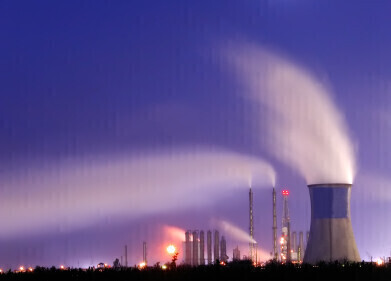Synthetic fuels
What Are the Benefits of Synthetic Fuels?
Nov 23 2022
From powering cars, trucks and planes to heating homes, the world is heavily reliant on natural resources to meet growing energy demands. Dwindling supplies of oil, gas and coal, combined with mounting concerns around climate change and air pollution, have forced the energy industry to explore alternatives. Cue synthetic fuels. The technology has stepped up as a drop-in replacement for fossil-derived fuels and offers a laundry list of benefits. We take a closer look below:
Zero environmental footprint
When produced using renewable electricity, synthetic fuels have no environmental footprint. In the Encyclopedia of Smart Materials, the authors spotlight hydrogen (H2) as a synthetic fuel with high chemical energy and enormous potential. Unlike other renewable energy sources like solar and hydrothermal, H2 is cheap and easy to produce via a process called electrolysis, which splits water into hydrogen and oxygen. When renewable electricity is used to power the electrolysis process, the hydrogen is 100% green.
A drop-in solution
Synthetic fuels share the same physicochemical properties as conventional fuels like petrol and diesel. This makes them compatible with internal combustion engines and existing fuel industry infrastructure. This includes storage tanks, pipelines and petrol station pumps. The drop-in technology means most of the 1.4 billion cars currently in circulation could stay on roads, instead of being scrapped or retrofitted with electric engines.
Unsurprisingly, luxury auto manufacturers like Ferrari have embraced the chance to save the internal combustion engine. Supercar giants like Porsche and Lamborghini also hope synthetic fuels can beat the looming ban on sales of new petrol and diesel cars set to sweep Europe in 2035.
“When it comes to alternatives to battery electric vehicles, we only see one - but this is something that we’re not sure is going to work - synthetic fuels,” says Stephan Winkelmann, Chief Executive Officer of Lamborghini. While he admits there are challenges, Winkelmann confirms hopes synthetic fuels could help keep high-powered, fire-breathing Lamborghinis on European roads.
Removes CO2 from the atmosphere
Synthetic fuels not only slash emissions. They actively remove CO2 from the atmosphere using carbon capture technology. At Repsol, engineers are using CO2 capturing technology to transform the greenhouse gas into a synthetic fuel feedstock. The captured CO2 is blended with renewable hydrogen to produce net-zero synthetic fuels compatible with internal combustion engines. It’s part of the company’s goal to adopt a sustainable ‘circular economy’ framework that optimises resources, reduces demand for raw materials and recycles waste.
With so many benefits on the table, it’s no wonder synthetic fuels are hailed as the “missing link” needed to achieve a net-zero global economy. Find out more about the latest developments in our complete guide: ‘Synthetic Fuels - What, How & Why’.
Digital Edition
PIN 25.6 Buyers' Guide
January 2025
Buyers' Guide Directory - Product Listings by Category - Suppliers Listings (A-Z) Articles Analytical Instrumentation - ASTM D7042: The Quantum Leap in Viscosity Testing Technology -...
View all digital editions
Events
SPE Hydraulic Fracturing Technology Conference and Exhibition
Feb 04 2025 The Woodlands, TX, USA
Feb 05 2025 Guangzhou, China
Trinidad and Tobago Energy Conference 2025
Feb 10 2025 Point Lisas, Trinidad
Feb 11 2025 Lagos, Nigeria
Feb 13 2025 Manama, Bahrain



















